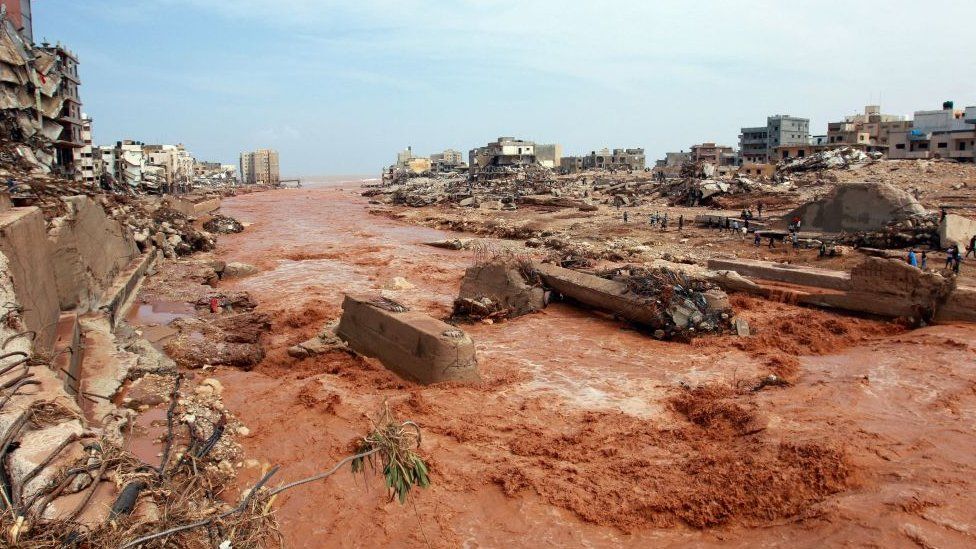-

-
-
Loading

Loading

The rescue teams in Libya are facing challenges in retrieving the bodies of victims who have been swept out to sea in a tsunami-like flood. The city of Derna has been hit the hardest, with at least 2,300 reported deaths, according to the ambulance authority. The storm named Daniel caused two dams and four bridges to collapse in Derna, leading to the flooding of the city. The Red Crescent has reported around 10,000 missing individuals, and the death toll is expected to rise further. Although some aid has started to arrive, the political situation in Libya has hindered the rescue efforts. The country is currently divided between two rival governments. Several countries, including the US, Germany, Iran, Italy, Qatar, and Turkey, have sent or offered to send aid. Video footage recorded at night shows floodwater flowing through the city, with cars floating helplessly in the current. There are distressing accounts of people being swept out to sea or clinging to rooftops to survive. Hisham Chkiouat from Libya's eastern-based government compared the scene to a tsunami. He stated that one of the dams in the south of Derna collapsed, pulling large parts of the city into the sea. Kasim Al-Qatani, an aid worker, mentioned that reaching Derna has been difficult for rescuers due to the considerable damage to main roads. An investigation has been launched to determine why the floods caused such widespread devastation. The government plans to allocate 2.5 billion Libyan Dinar ($515 million) to help rebuild Derna and the eastern city of Benghazi. The storm also affected the cities of Soussa, Al-Marj, and Misrata. Water engineering experts suggest that the upper dam failed first, causing water to rush down the river valley towards the second dam close to Derna. Survivors describe hearing a loud explosion when the dam burst. Libyan journalist Noura Eljerbi found out that approximately 35 of her relatives, who all lived in the same apartment block in Derna, were safe after contacting a local rescue team. However, the city is facing challenges with clean drinking water and a lack of medical supplies. The only hospital in Derna is unable to accommodate patients due to the large number of dead bodies. The political chaos in Libya has complicated the rescue efforts, with a lack of trained rescuers. However, the government in Tripoli has sent medical supplies and personnel to assist. The UN's World Food Programme is prepared to provide food supplies for 5,000 families. Derna, located in the fertile Jabal Akhdar region, was previously a stronghold for militants from the Islamic State group before being driven out by the Libyan National Army. The eastern administration is currently assessing the damage caused by the floods to reconstruct roads and restore electricity. It is suggested that the failure to properly rebuild and maintain infrastructure in Derna after years of conflict contributes to the high death toll. The Al-Wasat news website blames the security chaos and negligence of Libyan authorities for the catastrophe. People affected by the flooding in Derna are encouraged to contact the BBC to share their experiences.